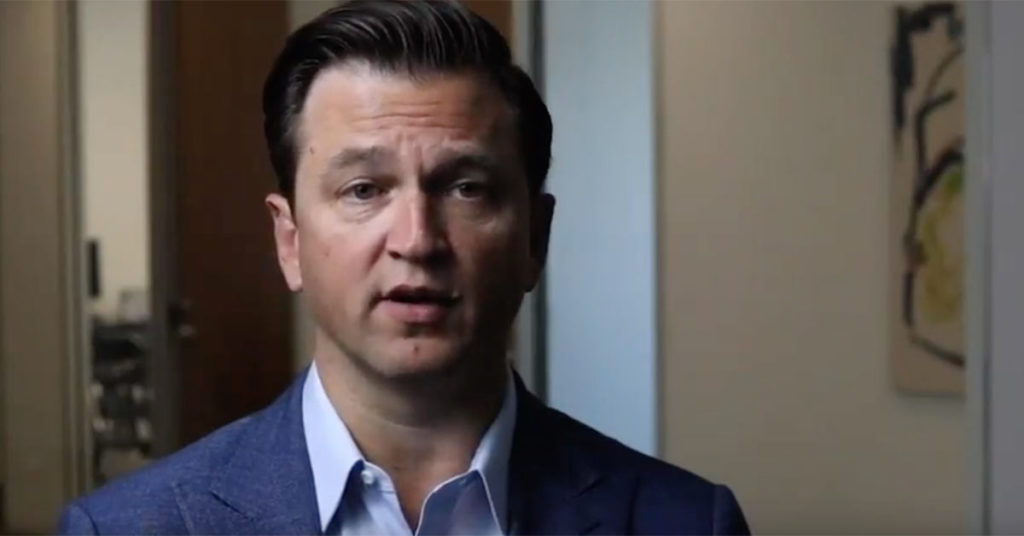A trust contest is a legal avenue for removing provisions of a trust that were the result of fraud, undue influence, coercion, or other wrongdoing. Trust contests can be instrumental in ensuring the wishes of the settlor, or creator of the trust, are fulfilled. However, they require specific processes and procedures to be effective. It’s important to have the guidance of an experienced trust contest attorney to support you through the process, like our team here at RMO.
Trust contests occur when a beneficiary or interested party raises a dispute surrounding the validity or administration of a trust. Trust contests can arise over a variety of situations, including challenges to the administration of a trust, disputes around the reliability of the trust, and concerns directed to the actions of a trustee.
The complexities and nuances behind a trust contest often make it difficult for an interested party to navigate them on their own. If done properly, these contests can result in a more favorable outcome for beneficiaries and ensure alignment with the interests of the trustor or settlor. However, in some cases, if a trust contest is found invalid, it can result in penalties, like a lost stake in an inheritance.
It’s important to have the support of an experienced trust contest attorney to help you understand your options and navigate the next steps. Our team at RMO is here to offer guidance on the best path forward.
Trust contests in California and Texas can take a variety of forms depending on the circumstances, and a valid trust contest requires very specific processes and procedures. At RMO Lawyers, we provide support throughout all the following steps in a trust contest.
You may contest a trust under specific situations, such as lack of legal capacity, undue influence, document forgery, and more. These circumstances may prompt disputes seeking to invalidate or modify the trust.
Our lawyers can analyze your case to determine whether you have grounds to contest a trust or circumstances surrounding a trust.
Trustees, beneficiaries, creditors, and other interested parties all have their own unique interest in a trust with potential claims to assets from the settlor. A trust contest can clarify which stakeholders have what claims to a trust and how to distribute assets in line with the trustor’s intentions.
There are several procedures to follow to ensure the validity of a trust contest. Under Cal. Probate Code Section 16061.7, for example, the time limit to contest the validity of a trust is 120 days, and the contest must be filed in court with evidence to support it. Additionally, the petitioning process may entail a mandatory 60-day waiting period if it’s aimed at compelling the disclosure of pertinent information, such as an accounting. Should no resolution be reached within this timeframe, a petition must be filed to request court intervention, either to mandate specific actions by the trustee or to seek their replacement.
Texas law doesn’t explicitly define a time limit for contesting trusts, so the Texas Civil Practice and Remedy Code’s default four-year period under Tex. Civ. Prac. & Rem. Code § 16.051, likely governs. Different rules apply, however, for testamentary trusts. These types of trusts are found within the pages of a will and do not take effect until after the death of the trust maker. According to, Tex. Est. Code § 256.204(a), to contest these trusts, one must challenge the will itself. The deadline for contesting testamentary trusts is two years after a court probates the will containing the trust. In cases of fraud or forgery, a separate provision applies, allowing for a two-year window post-discovery of such acts to contest the trust.
Many factors affect the procedural requirements around statutes of limitations of trust contests. It’s worth consulting with a qualified attorney to share your unique circumstances to determine the exact procedures and limitations for your case.
Our team of trust contest attorneys at RMO will help you navigate the process, determine if you meet the procedural requirements, and help you maximize your potential outcome.
Contesting a trust comes with considerable risk. A trust contest has inherent possibilities of benefits and risks. For example, if a beneficiary contests a trust with a no-contest clause and loses, they risk forfeiting their inheritance. However, a successful contest with valid reasoning can result in a more favorable asset distribution or a reward of damages for wrongdoing. A trust contest attorney can evaluate your claims and help you weigh the benefits and risks of contesting a trust. Consult our lawyers at RMO to discuss the best path forward.
A trust contest does not always have to entail courtroom litigation. Alternative dispute resolution methods can include out-of-court negotiations or mediation. RMO attorneys advocate for our client’s best interests to protect their legal rights in procedures such as mediation, providing legal advice, as well as all the diligence to ensure the case is ready to be settled with the best possible outcome.
Our probate attorneys focus on all types of trust contest disputes. Whether you’re a trustee, executor, heir, or beneficiary we can help you resolve your probate dispute.
Trust contests can take various forms and arise due to a wide range of potential disputes. At RMO, we help clients navigate each of the following scenarios surrounding a trust contest in California or Texas.
Disputes over trust validity can include concerns over the authenticity of trust documents, the capacity of the trust creator, undue influence on the creator, fraud, or lack of proper execution. RMO trust attorneys in California and Texas can help clients navigate these disputes and determine the validity of trust documents.
Disputes over the interpretation of a trust lead to some of the most common trust contests. RMO trust attorneys can offer support in gathering information about the appropriate interpretation of a trust, as well as promote clear and precise language in trust documents to ensure alignment with the wishes of the settlor.
Circumstances may arise where a beneficiary or interested party requests to have a trust modified or terminated. However, a change in a trust must occur only through appropriate processes and procedures. RMO Lawyers can provide answers to your questions and offer appropriate guidance for modifying a trust.
A trust can have several interested beneficiaries, leading to competing claims and disputes surrounding the appropriate distribution of assets. Our lawyers in California and Texas will work to ensure the asset distribution aligns with the decedent’s wishes and brings about the best possible outcome for all sides.
An attorney can be a valuable resource in a trust contest. They can assess grounds for a trust contest and provide guidance throughout the process to bring about the best possible result for all parties. Because a trust contest can be complex and require careful legal steps, you should consider contacting a trust contest attorney if you have any questions or concerns.
Some common scenarios for contacting a contested trust attorney include:
Ultimately, if you have any questions about a trust contest, schedule a consultation with our trust contest lawyers at RMO. If you think you have grounds for a trust contest or have a contest raised against you as a trustee, our attorneys at RMO can help.
Because of the complexities of contesting a trust, several parties may benefit from a qualified and experienced trust contest attorney. RMO has helped defend and carry out hundreds of trust contests to uphold the settlor’s intentions, and our lawyers support all the following parties.
Beneficiaries may contest a trust if they believe it was improperly administered, have concerns surrounding the conduct of a trustee, or dispute the terms outlined by the trust. We support clients in evaluating grounds for contest and building a case to protect their rights to a trust’s assets.
Heirs may raise concerns over a trust if they believe they were created under duress, fraud, or undue influence. Our lawyers can offer guidance in determining whether they have grounds to contest and in carrying out the process to bring about the best possible outcome.
In cases where a trust contest is directed at a trustee or their actions, such as in a petition for a trustee removal, they may seek representation to defend their position. Our contested trust lawyers at RMO can offer guidance on how to fulfill a fiduciary duty and help resolve potential disputes.
Several potential parties may raise contests over a trust, including business partners, spouses, former spouses, or other individuals with legal standing. RMO Lawyers can support each of these parties in raising a trust contest.
Answers to common questions about trust contests, helping you better understand your rights and the legal processes involved in protecting your interests.
In California and Texas, the time frame for contesting the validity of a trust can vary depending on the circumstances and the specific laws in each state.
However, generally in California, the statute of limitations for contesting the validity of a trust is either 120 days from the date the notice of the trust administration is served to the beneficiaries or 60 days from the date of a notice of proposed action, whichever is later. If no notice is served to beneficiaries, the statute of limitations for contesting the trust’s validity is typically either 120 days from the date the trustee served notice of the trust to the beneficiary, or 60 days from the date the beneficiary receives actual knowledge of the trust’s existence and terms, whichever is later.
In Texas, the law doesn’t explicitly define a time limit for contesting trusts, so it is advisable to contact an attorney with your specific case details to determine if you are able to contest a trust.
To get guidance on contesting the validity of a trust in California or Texas, please schedule a free consultation with RMO.
Contesting a trust and contesting a will are similar in some ways, but they have significant differences, most notably in the estate planning document itself. A will is a document that outlines how a person’s assets and property should be distributed after their death, while a trust is a legal arrangement where a trustee holds assets on behalf of beneficiaries according to the terms of the trust.
Yes. It’s possible to contest a trust even if you’re not named as a beneficiary. It typically requires having standing, valid legal grounds, and a legitimate interest in the trust or its outcome. At RMO, we often see heirs demonstrate that they were supposed to be beneficiaries but were unfairly excluded.
Equally important as who can is why a trust can be contested. You would need valid legal grounds to contest the trust, such as allegations of fraud, undue influence, lack of capacity of the trust creator, or improper execution of the trust document.
Consulting with an experienced trust contest attorney will better determine if you are able to bring a contested claim.
Insights and advice on trust contests from our blog.

LOS ANGELES, Sept. 22, 2021 / PRNewswire / — Probate litigation law firm RMO LLP announced today it has secured a $1.1 million trial [...]
LOS ANGELES, Sept. 22, 2021 / PRNewswire / — Probate litigation law firm RMO LLP announced today it has secured a $1.1 million trial […]

Executive Summary Introduction A trust is a legal arrangement where one person or entity, known as the “trustee,” holds the title to property and [...]
Executive Summary Introduction A trust is a legal arrangement where one person or entity, known as the “trustee,” holds the title to property and […]

Trustees commonly face claims for breach of trust, misappropriation of trust funds, mismanagement, malfeasance, fraud, or breach of fiduciary duty. If you’ve been accused [...]
Trustees commonly face claims for breach of trust, misappropriation of trust funds, mismanagement, malfeasance, fraud, or breach of fiduciary duty. If you’ve been accused […]

Today’s technologies have made contesting a trust easier than you think. We have substantial experience working with remote clients who never physically come into [...]
Today’s technologies have made contesting a trust easier than you think. We have substantial experience working with remote clients who never physically come into […]

California Probate Code 850 (commonly referred to as a Heggstad petition) guides the legal process of avoiding lengthy court probate administration procedures by asking [...]
California Probate Code 850 (commonly referred to as a Heggstad petition) guides the legal process of avoiding lengthy court probate administration procedures by asking […]
A member of the RMO Client Relations team will reach out to gather additional information concerning the parties to your case and schedule your consultation.
Please note that communications by you to RMO LLP or any of its lawyers through this website do not create an attorney-client relationship between you and the firm. Do not send any privileged or confidential information to the firm through this website or otherwise until instructed in writing from us to do so.
Help us to understand your needs